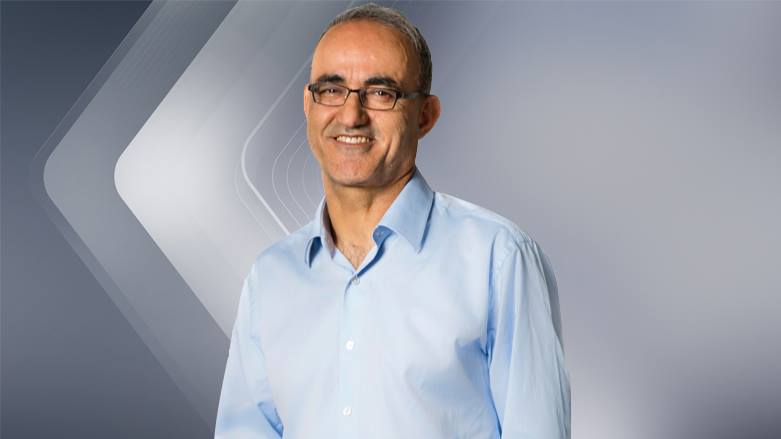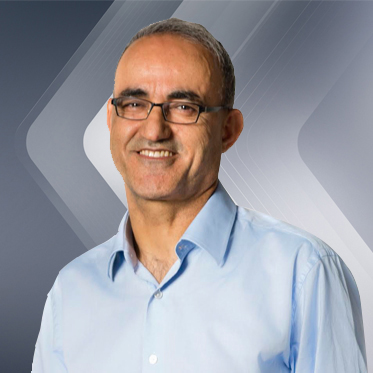A Biopsy of Iraq

When you are not feeling well, your doctor may order a biopsy: a microscopic scrutiny of tissue bits for signs of cancer or other diseases.
We cannot do a biopsy on countries, but they are made up of humans, and their feelings about themselves and their compatriots, if scrutinized closely, may give us a sense of how that country is doing in the world.
How would Iraq fare if it were subjected to a biopsy of feelings?
Would the country that was conceived in Cairo by “Winston Churchill and his Forty Thieves” get a clean bill of health—or be declared terminally ill?
A new book about the country comes close to qualifying for a biopsy of Iraq. It is called Being Kurdish in a Hostile World, by journalist Ayub Nuri.
Nuri has a knack for good stories. He collected them while working as a translator, fixer, and reporter for western news outlets such as the New York Times, the BBC, and the PRI from 2003 to 2007.
In a peaceful country, four years are enough to qualify one for a Bachelor of Arts or Science degree at a university. In war-ravaged Iraq, Nuri was forced to lead a fast life, squeezing the experience of decades into single-digit years.
He saw thousands of dead bodies, escaped kidnapping three times, met heads of states, and broke bread with their underlings. He clearly saw Iraq’s fault lines, and what separated its inhabitants.
If Kurds are your business and their neighbors your concerns, this book is your meat. What some Kurds do in several of his stories will infuriate you. You would not be wrong to call them the incipient cancer cells of Kurdistan.
But what our neighbors do to us is far more interesting and much more instructive. In making sense of it, we may find our way out of the Middle Eastern quicksand.
The alternative will only exasperate the situation burdening the region with a prohibitive security cost that will have to account for keeping 40 million Kurds in subjugation.
Nuri’s own tale inside Iraq says a lot about the history that was saddled on the country’s Kurdish and Arab youth and the challenges that await them—these days, as they try to turn a new page.
He became a casualty of war at the age of 4 (1983) when Iranians shelled a passing Iraqi convoy near his family hut in Halabja. Shrapnel pieces blasted Nuri’s knee and his grandmother’s head.
His grandmother died in agony six months later, and Nuri faced the horror of an amputated leg. For years, his injured leg was shorter than the healthy one. A semblance of normalcy came only when he was 21.
He happened to meet an American professor, Kathy Fuad, who urged him to visit an Italian-funded clinic in Sulaimani, the Emergency Hospital for War Victims that served casualties of landmines.
He did. His knee fixed, his legs were evened out. He was discharged with a grateful heart.
What awaited him outside though was a lot more disturbing.
His parents naturally shared his joy, but some bigot mistook his rancor for piety and told Nuri to count his blessings, not because he had been healed, but because he had escaped an amputation.
He went on, “It is a Western hospital, and their only goal is to amputate people’s legs and hands. They want to cripple the Muslim world.”
That the Butcher of Baghdad placed more mines in southern Kurdistan than there are Kurds in that place, in the name of Quran no less, must be news to this ignoramus Kurd. His animosity toward the life-restoring hospital and its staff and its patrons is, of course, obscene.
But the story that puts a “smile” on the faces of Kurdish patriots belongs to our neighboring Persians. What they do in Kurdistan is nothing new; the new thing about it is how Nuri relates it.
The Islamic Movement of Kurdistan (IMK) and the Patriotic Union of Kurdistan (PUK) have a falling out. Instead of ironing out their differences through dialogue, they reach for their loaded guns and patrons.
Iran is happy to supply both sides with ammunition.
When the IMK discover that Tehran is also supporting their archrival, the PUK, they complain. The clerical response cuts to the chase with what is wrong with the Middle East in general and Kurds in particular:
“We don’t have the habit of turning down anyone’s request for help.”
If Kurdish patriots cannot understand that to close ranks, we might as well give our people the kiss of death and resign from being Kurdish in this God-forsaken world.
Kani Xulam is a political activist based in Washington DC. He runs the American Kurdish Information Network (AKIN).
The views expressed in this article are those of the author and do not necessarily reflect the position of Kurdistan 24.
Editing by Karzan Sulaivany
